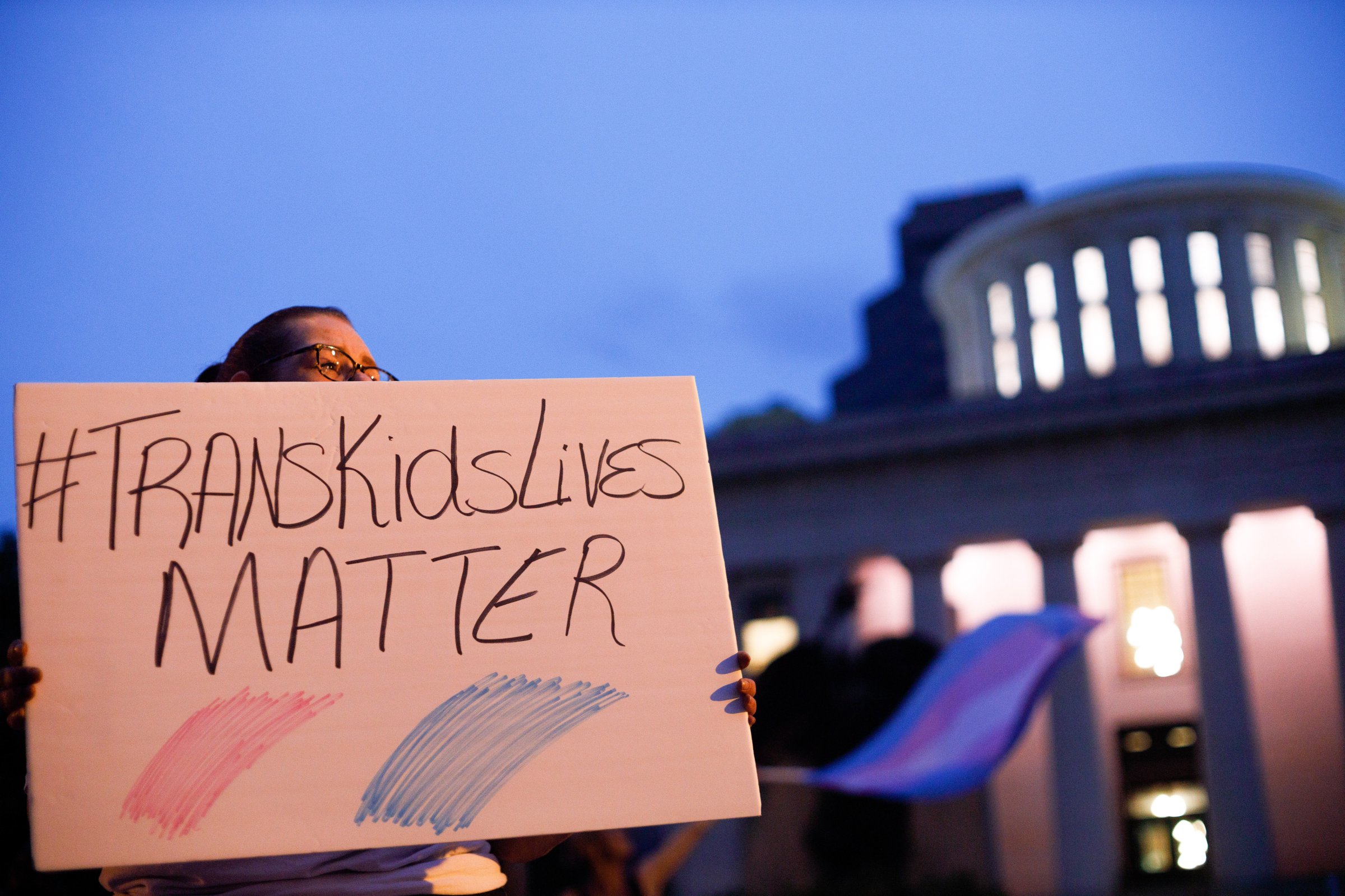
Ohio Governor Mike DeWine vetoed a bill that would ban any gender transition care for minors on Dec. 29, breaking with his own party’s legislature, which had voted to pass the measure earlier in December.
Capping a year in which nearly 20 states have restricted gender-affirming care for youth under the age of 18, Ohio’s Republican-majority House and Senate both passed the Saving Adolescents from Experimentation (SAFE) Act on Dec. 13. The bill aimed to outlaw providing youth under 18 with gender-affirming care, including hormone therapy, puberty blocker medication, or gender reassignment surgery.
The governor, a Republican, cited the life-saving nature of gender-affirming care at a press conference announcing his veto decision.
“This bill would impact a very small number of Ohio’s children. But for those children who face gender dysphoria, and for their families, the consequences of this bill could not be more profound. Ultimately I believe this is about protecting human life,” DeWine said. “Many parents have told me that their child would not have survived, would be dead today, if they had not received the treatment they received from one of Ohio’s children’s hospitals.”
The vetoed measure, Ohio’s House Bill 68, also would have prohibited transgender athletes who weren’t assigned female at birth from playing on sports teams designated for women at the high school and college levels.
The Ohio measure was one of more than 500 anti-LBGTQ bills that lawmakers across the country introduced or passed in 2023. More than 75 have been passed into law—the majority of which have restricted health care for transgender minors, according to the American Civil Liberties Union.
Legal attacks on trans youth have intensified over the past two years, says Erin Upchurch, executive director of Kaleidoscope Youth Center (KYC) in Columbus. The center provides community and support, including gender-affirming care, for LGBTQIA+ people ages 12 to 24 in Ohio, and Upchurch says her team witnesses the importance of providing this type of care to trans adolescents.
“We know what it means when the part of you that’s inside gets to be alive—what it means to be seen. We get to see it every single day because of the space we provide,” Upchurch says. “The idea of taking that light away from somebody is just really cruel.”
Upchurch says she has been impressed with the strength of young trans people in Ohio as their state lawmakers have tried to invalidate their identities and right to care.
“They have been so brave, courageous, and resilient,” Upchurch says, though she’s sad that is what the political climate has required of them. “What choices do they have?”
Many parents of transgender children in Ohio have been distressed as HB68 advanced through committees this year. Upchurch says families she works with have been figuring out whether they should stay in the state if HB68 passed. Some have started taking steps like gathering documents for moving out of Ohio and working elsewhere. She works with multiple young people who have pending gender surgeries scheduled, and as they waited for the governor’s decision, they worried they would lose their upcoming care.
DeWine said he spoke with many recipients of gender-affirming care, their families, and physicians at all five of Ohio’s children’s hospitals in order to make his decision. After talking with trans youth who said they were thriving due to their care, and parents who said gender-affirming treatment saved their children’s life, the governor emphasized the rights of parents to make any choices about their own child’s health care.
“These are gut-wrenching decisions that should be made by parents and should be informed by teams of doctors who are advising them,” DeWine said. “Were House Bill 68 to become law, Ohio would be saying that the state, that the government, knows better what is medically best for a child than the two people who love that child the most: the parents.”
Ohio Republicans have a supermajority in the state legislature, which gives them the power to override his veto. DeWine announced actions to support some of the positions of the bill’s sponsors, such as requiring data collection about gender-affirming care for young people and looking into banning gender reassignment surgeries for anyone under 18.
Despite this, Upchurch says she is elated about DeWine’s veto. But transgender young people and their communities know the threat of anti-LGBT legislation, and the emotional toll it takes remains.
“What I want to believe is that Governor DeWine is an example of how to lead, how to have a state where people can feel at home, where people can thrive,” she says. “I’m hoping this veto and conversation moving forward can bring the light back to these young folks and their families.”
More Must-Reads from TIME
- Cybersecurity Experts Are Sounding the Alarm on DOGE
- Meet the 2025 Women of the Year
- The Harsh Truth About Disability Inclusion
- Why Do More Young Adults Have Cancer?
- Colman Domingo Leads With Radical Love
- How to Get Better at Doing Things Alone
- Michelle Zauner Stares Down the Darkness
Write to Julia Zorthian at julia.zorthian@time.com